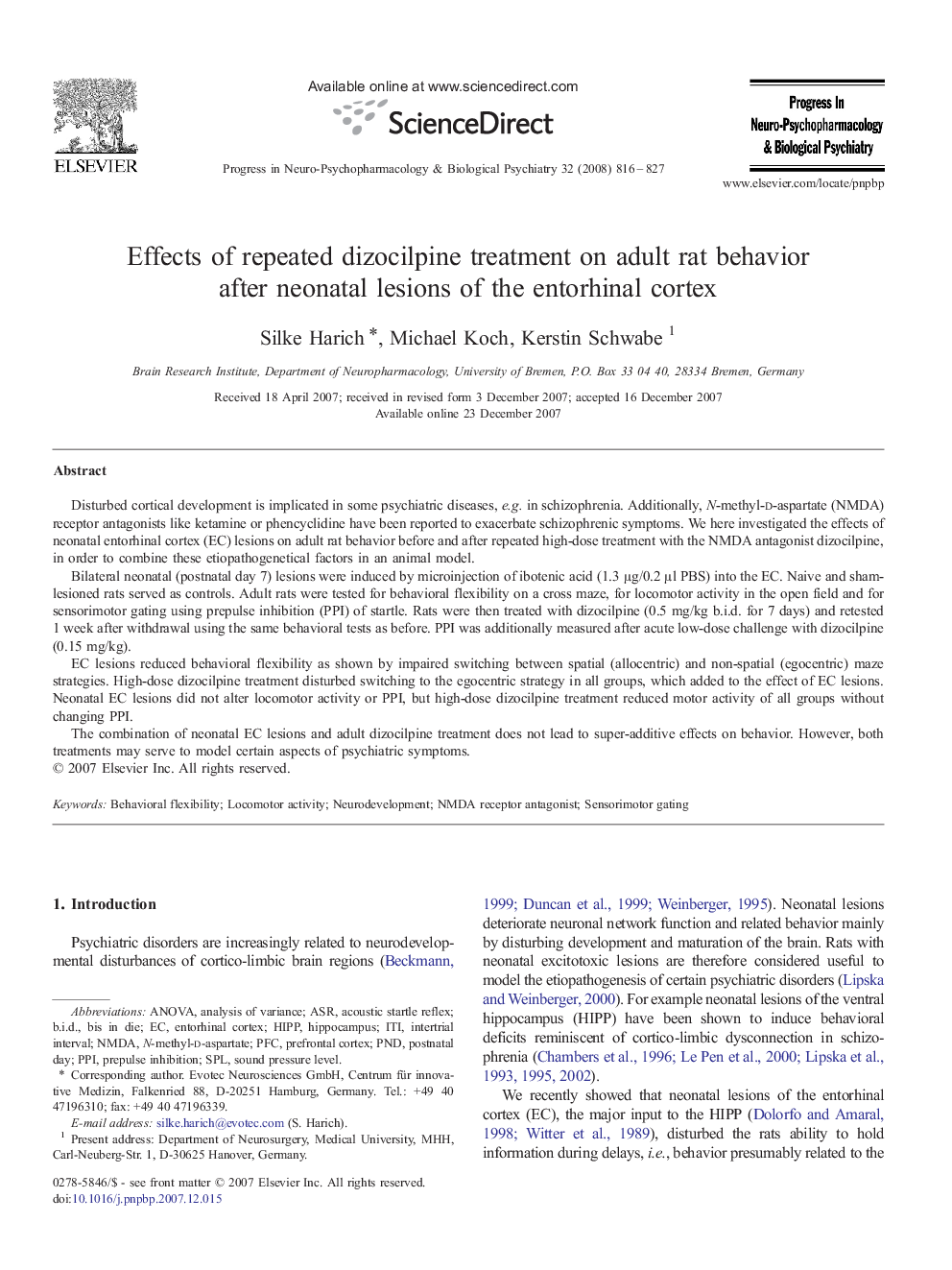| کد مقاله | کد نشریه | سال انتشار | مقاله انگلیسی | نسخه تمام متن |
|---|---|---|---|---|
| 2565865 | 1128068 | 2008 | 12 صفحه PDF | دانلود رایگان |

Disturbed cortical development is implicated in some psychiatric diseases, e.g. in schizophrenia. Additionally, N-methyl-d-aspartate (NMDA) receptor antagonists like ketamine or phencyclidine have been reported to exacerbate schizophrenic symptoms. We here investigated the effects of neonatal entorhinal cortex (EC) lesions on adult rat behavior before and after repeated high-dose treatment with the NMDA antagonist dizocilpine, in order to combine these etiopathogenetical factors in an animal model.Bilateral neonatal (postnatal day 7) lesions were induced by microinjection of ibotenic acid (1.3 μg/0.2 μl PBS) into the EC. Naive and sham-lesioned rats served as controls. Adult rats were tested for behavioral flexibility on a cross maze, for locomotor activity in the open field and for sensorimotor gating using prepulse inhibition (PPI) of startle. Rats were then treated with dizocilpine (0.5 mg/kg b.i.d. for 7 days) and retested 1 week after withdrawal using the same behavioral tests as before. PPI was additionally measured after acute low-dose challenge with dizocilpine (0.15 mg/kg).EC lesions reduced behavioral flexibility as shown by impaired switching between spatial (allocentric) and non-spatial (egocentric) maze strategies. High-dose dizocilpine treatment disturbed switching to the egocentric strategy in all groups, which added to the effect of EC lesions. Neonatal EC lesions did not alter locomotor activity or PPI, but high-dose dizocilpine treatment reduced motor activity of all groups without changing PPI.The combination of neonatal EC lesions and adult dizocilpine treatment does not lead to super-additive effects on behavior. However, both treatments may serve to model certain aspects of psychiatric symptoms.
Journal: Progress in Neuro-Psychopharmacology and Biological Psychiatry - Volume 32, Issue 3, 1 April 2008, Pages 816–827